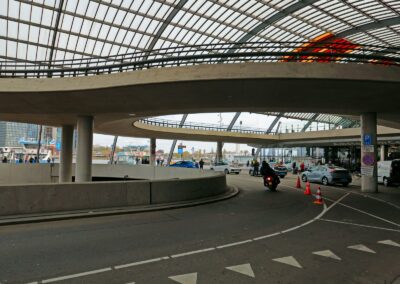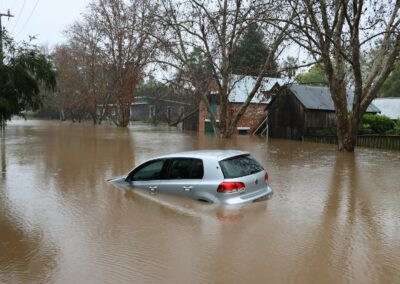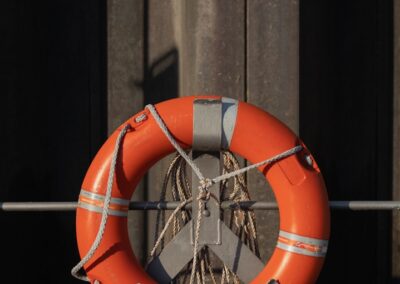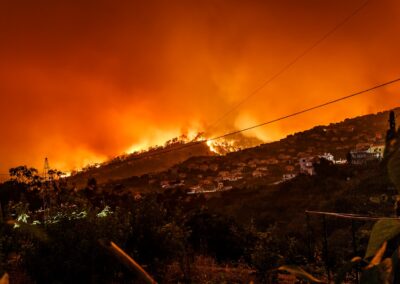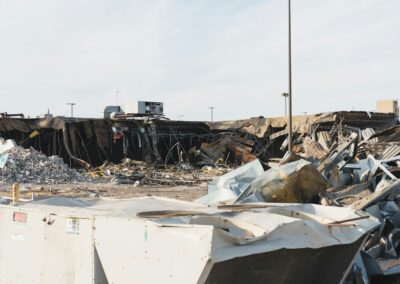The Strategic Importance of Distributing Resources for Resilient Solutions
The Critical Role of Geographic Redundancy
Geographic redundancy in disaster recovery is a key strategy that involves distributing resources across multiple locations to enhance resilience. This approach ensures that even in the event of a localized disaster, critical operations can continue without interruption. Saudi Arabia and the UAE have recognized the importance of geographic redundancy, implementing it as part of their broader strategies to safeguard their growing digital economies.
In regions like Riyadh and Dubai, where economic activities are densely concentrated, the potential impact of disasters is significant. By distributing resources geographically, businesses can mitigate the risks associated with these events. Geographic redundancy not only protects data and infrastructure but also ensures that business operations remain functional, minimizing downtime and maintaining service continuity.
Moreover, the integration of modern technologies such as Artificial Intelligence (AI) and Blockchain into disaster recovery solutions further strengthens their resilience. AI can predict potential failure points and optimize resource allocation, while blockchain provides a secure and transparent way to manage recovery processes. These technologies are particularly valuable in ensuring that geographic redundancy is effectively implemented and maintained.
Implementing Geographic Redundancy in Modern Business
Implementing geographic redundancy requires careful planning and execution. Businesses must identify critical operations and data that need to be protected and determine the best locations for redundant resources. This involves analyzing various factors such as geographical risks, connectivity, and regulatory requirements. In Saudi Arabia and the UAE, the focus has been on creating robust infrastructures that support geographic redundancy.
One of the key challenges in implementing geographic redundancy is ensuring seamless integration between different locations. This is where technologies like Generative Artificial Intelligence (GAI) come into play. GAI can simulate various disaster scenarios and provide insights into the most effective ways to distribute resources. This proactive approach allows businesses to prepare for a wide range of potential disruptions.
In addition to technological solutions, effective leadership and management skills are crucial for successful implementation. Business executives and mid-level managers must work together to develop comprehensive disaster recovery plans that incorporate geographic redundancy. This involves coordinating with various stakeholders, including IT teams, regulatory bodies, and external partners, to ensure that all aspects of the recovery plan are covered.
The Future of Disaster Recovery in Saudi Arabia and the UAE
As Saudi Arabia and the UAE continue to invest in their digital infrastructures, the importance of geographic redundancy will only grow. These countries are embracing innovative technologies to enhance their disaster recovery capabilities, ensuring that they remain resilient in the face of potential disruptions. The focus on geographic redundancy reflects a broader commitment to creating secure and sustainable business environments.
The integration of AI and blockchain into disaster recovery solutions is a testament to the forward-thinking approach of these nations. AI can continuously monitor and analyze data to detect potential threats, while blockchain ensures the integrity and transparency of recovery processes. This combination of technologies provides a robust foundation for geographic redundancy, enabling businesses to maintain operations even in the most challenging circumstances.
In Riyadh and Dubai, the emphasis on geographic redundancy is also driven by the need to support their ambitious smart city initiatives. These initiatives aim to create urban environments that are not only technologically advanced but also resilient to various risks. By incorporating geographic redundancy into their disaster recovery plans, these cities are setting new standards for urban resilience.
Leadership and Management in Disaster Recovery
Effective disaster recovery requires strong leadership and management skills. Business leaders must be proactive in identifying potential risks and developing strategies to mitigate them. This involves not only investing in technology but also fostering a culture of resilience within the organization. In Saudi Arabia and the UAE, there is a growing recognition of the need for comprehensive disaster recovery plans that incorporate geographic redundancy.
Managers play a crucial role in coordinating the implementation of these plans. They must ensure that all team members are aware of their roles and responsibilities in the event of a disaster. This includes regular training and drills to ensure that everyone is prepared to respond effectively. By fostering a culture of preparedness, businesses can enhance their resilience and ensure that they are ready to face any challenges that may arise.
Furthermore, effective communication is essential in disaster recovery. Leaders must maintain open lines of communication with all stakeholders, including employees, customers, and partners. This ensures that everyone is informed and can take appropriate action when needed. By prioritizing communication and collaboration, businesses can enhance their disaster recovery efforts and ensure that they are able to maintain operations even in the most challenging situations.
Conclusion
Geographic redundancy is a critical strategy for enhancing the resilience of disaster recovery solutions. By distributing resources across multiple locations, businesses can ensure that they remain operational even in the face of localized disruptions. In Saudi Arabia and the UAE, the implementation of geographic redundancy reflects a broader commitment to leveraging modern technologies and creating secure, resilient business environments. As these nations continue to invest in their digital infrastructures, the importance of geographic redundancy will only grow, ensuring that they are prepared to face any challenges that may arise.
—
#GeographicRedundancy #DisasterRecovery #Resilience #DistributedResources #ModernTechnology #AI #Blockchain #SaudiArabia #UAE #Riyadh #Dubai





